At this unprecedented time of challenge and crisis in healthcare, we recognize all our members and other healthcare professionals serving on the frontlines of the pandemic, for their immense sacrifice and undaunted dedication. We thank you for your good clinical judgment, and your consistent prioritization of patient health and safety above other concerns.
The following are reflections from a few of our frontline heroes on their experience, and specifically—knowing that the next pandemic is a matter of “when” rather than “if”—what lessons they’ve learned during the pandemic that they will carry forward.
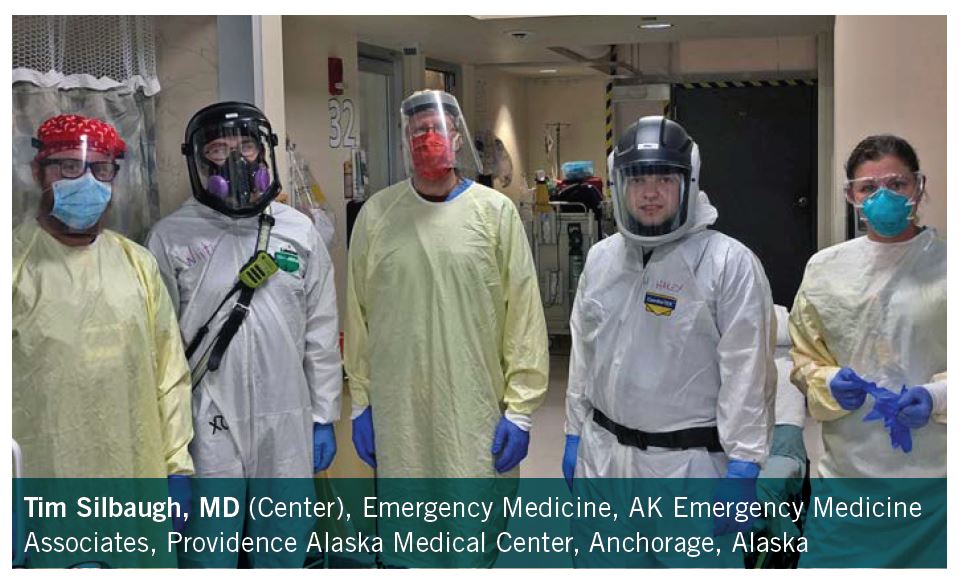
As an emergency-medicine physician working through the COVID-19 pandemic, I more fully value the outstanding cooperative spirit of our frontline medical providers. Nurses, doctors, paramedics, and techs work extra shifts, providing direct care in stifling masks, gowns, and respirator hoods. The local and national hospital administrators apply lessons learned in the hot zones of infection to rapidly create new isolated treatment zones and care protocols. I am equally aware how much better our healthcare in the United States could be if our country embraced world-class excellence in medical care. Even with dedicated physicians, abundant financial resources, and the most advanced medical technology, the U.S. has underperformed most nations in our response to COVID-19, with more cases and deaths than any other nation. To be prepared for the next pandemic, the United States needs universal healthcare, accessible to all Americans, and national leadership that respects, understands, and supports the medical sciences.
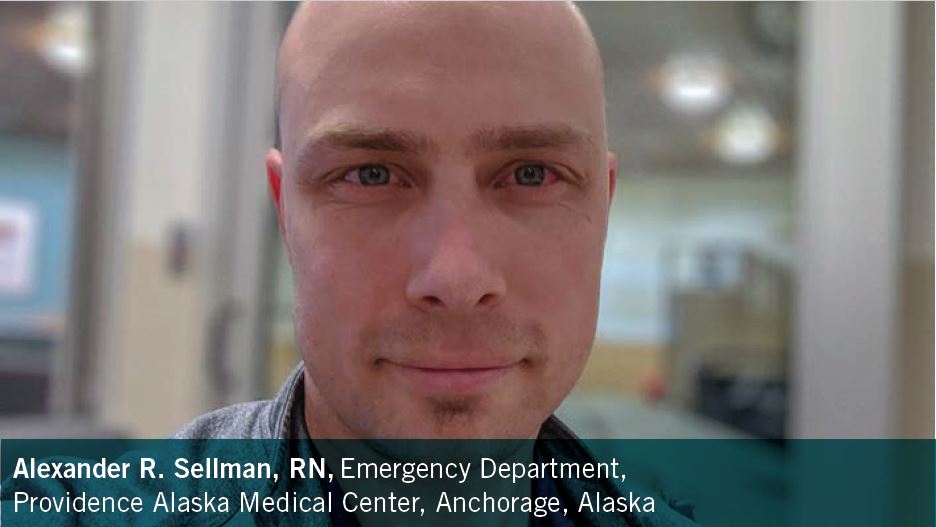
I never thought that I would be qualified for emergency nursing. Then I realized that it was not my clinical understanding or experience that prepared me for the emergency room, but my heart. I knew I would likely encounter great tragedy and uncertainty on the frontlines of healthcare, but I was all in. I am here for one thing—to help. I prepared with our Highly Infectious Treatment Team here at Providence Alaska Medical Center knowing that the next pandemic, breakout, or mass-casualty incident was right around the corner. When the COVID-19 pandemic hit, I knew that the key was constant readiness and confidence in my ability to serve. My training gave me the confidence to address the many changes that came our way. For future pandemics or surges, our greatest challenge may be addressing the fear and uncertainty that COVID-19 has created in patients, families, and healthcare workers.
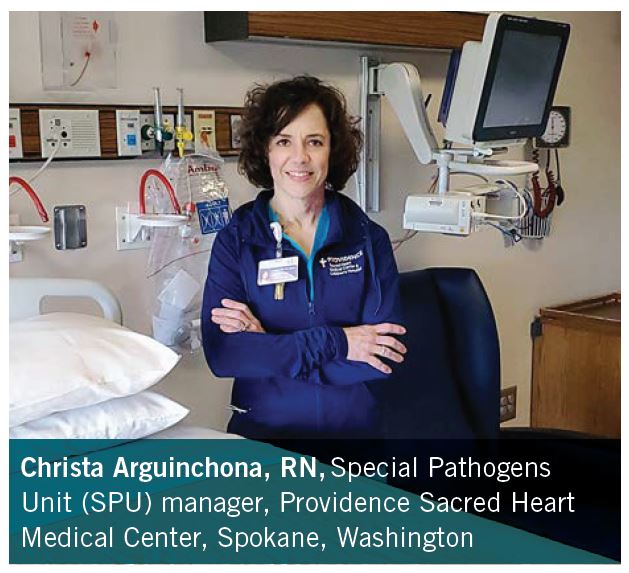
As a regional treatment center for emerging special pathogens, we conduct quarterly training exercises. We saw the results of this training in our preparation for COVID-19. Understanding surge planning, PPE donning and doffing, and clinical workflows for a respiratory pathogen was extremely valuable in our response and allowed us to adjust our plan as needed, based on the specifics of the COVID-19 pandemic. Knowing the value of that training and translating it into a state of preparedness will shape our approach moving forward. It has been a privilege to take part in the interdisciplinary teamwork and commitment that has been so evident in our COVID unit. Watching some of our patients walk out of the hospital and be reunited with their families, knowing how ill they were, has been highly rewarding and a tribute to the sacrifice and commitment of our amazing team.
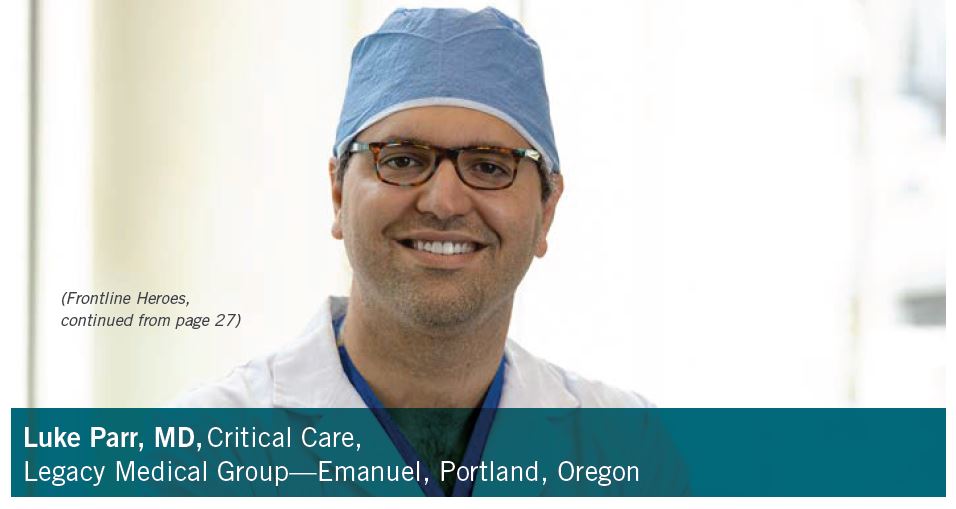
I work for Oregon Anesthesiology Group (OAG) and serve on one of Legacy Health’s Critical Care and ECMO (Extracorporeal Membrane Oxygenation) teams. ECMO is an external heart-lung bypass machine for people who are likely to die even on conventional life-support systems, such as mechanical ventilators, and provides a last-line form of therapy. During this pandemic, I’ve traveled to hospitals in a multistate area to care for COVID-19 patients as young as 19 and as old as 61, many of whom have come off ECMO and are on the path to recovery. From top to bottom, Legacy’s clinical staff, nonclinical staff, and leadership, as well as my colleagues at OAG, have been incredibly brave. They choose to show up at work every day, knowing they’re risking their own health and that of their families, to take care of patients with COVID-19. But this has been hardest for the patients’ families, with visitation severely restricted. Still, in the hardest of times, the families I’ve worked with have responded with understanding and compassion.
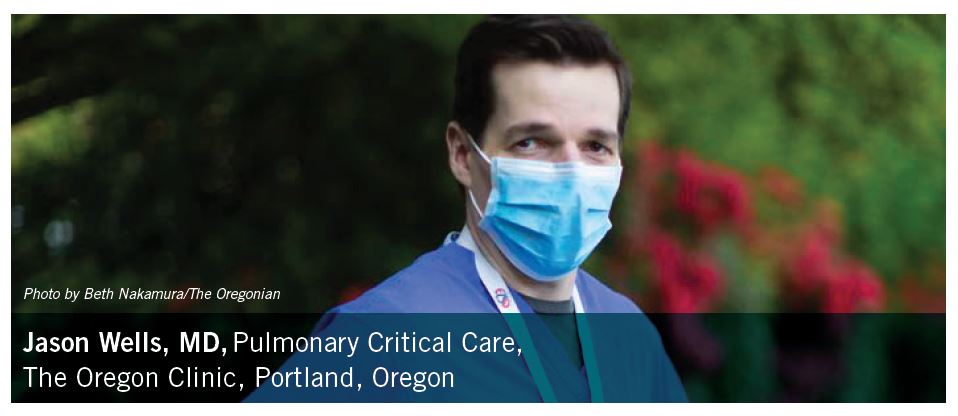
My biggest lesson has been the importance of preparedness and planning for pandemics ahead of time so that we’re not creating protocols from scratch. If there is a bright spot to come out of this, it’s that we are now better prepared to handle surges, and have plans in place for future pandemics or any new COVID-19 surges we may experience this fall and winter. Throughout this experience I’ve been impressed with the whole healthcare system, from the people who clean the rooms to the hospital administrators. Everyone has put in extraordinary effort; it’s very heartening to see people put themselves on the line in order to care for patients. Until something like this happens, you don’t really know how the system will react, and the response of our healthcare teams has been remarkable to see.